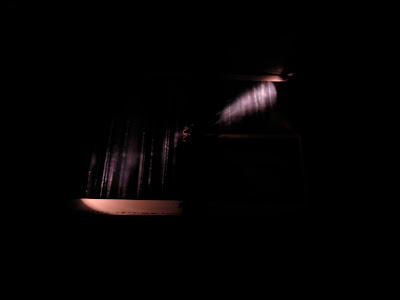Website
Sunday, 28 February 2010
Tuesday, 23 February 2010
Monday, 22 February 2010
Wednesday, 17 February 2010
Non Things

Martin Creed, Work No. 232
The paradoxical desire and contradictory impulse to produce something and nothing.
''The world is full of objects, more or less interesting; I do not wish to add any more. I prefer, simply, to state the existence of things in terms of time and place.'' Douglas Huebler
Tuesday, 9 February 2010
Summary of The Death of the Author
CVCS, Semester 2
Week 2 : Authorship
A summary of The Death of the Author by Roland Barthes
The passage begins with a quote from Sarrasine Balzac as an example of a piece of literature in which the narrator is unknown, we do not know who is speaking. As this is possible in the written but not the spoken word, the author Barthes claims that writing is the "deconstruction of every voice, of every point of origin."
He states how in ethnographic societies a mediator or shaman will tell stories but is not directly given credit for the story as it is a retelling, a performance. The idea of the 'Author' is a relatively recent one, "the epitome and culmination of capitalist ideology which has attached the greatest importance to the 'person' of the author. The passage goes on to state that "It is language that speaks, not the author".
Barthes gives an example of how Proust played with this view of the narrative and where real life and fiction meet and which comes first. He then goes on to talk about writing from a linguistic point of view, "Linguistically, the author is never more than the instance of writing, just as I is nothing other than the instance of saying I" This therefore reinforces the idea of the "removal of the author."
So if we accept this so called "Death of the Author", this completely transforms how we read modern literature. The passage here claims that from the author creating a book, now the book and the author come into being at the same time.
"There is no other time than that of the enunciation and every text is eternally written here and now."
Barthes then goes on to say that basically, nothing is original or can be original.
"We know now that a text is not a line of words releasing a single theological meaning - but a multidimensional space in which a variety of writings, none of them original, blend and clash. The text is a tissue of quotations drawn from the innumerable centres of culture."
Therefore, just by using language, "words only explainable through other words", the author is removed. Modern writing can no longer be deciphered, only disentangled, all the multiple references from our shared culture.
The passage concludes that the Author has lost all significance. It is only when all these fragments are read by the reader that literature can mean anything,
"The reader is the space on which all the quotations that make up a writing are inscribed without any of them being lost; a text's unity lies not in its origin but in it's destination."
You, the Reader.
Week 2 : Authorship
A summary of The Death of the Author by Roland Barthes
The passage begins with a quote from Sarrasine Balzac as an example of a piece of literature in which the narrator is unknown, we do not know who is speaking. As this is possible in the written but not the spoken word, the author Barthes claims that writing is the "deconstruction of every voice, of every point of origin."
He states how in ethnographic societies a mediator or shaman will tell stories but is not directly given credit for the story as it is a retelling, a performance. The idea of the 'Author' is a relatively recent one, "the epitome and culmination of capitalist ideology which has attached the greatest importance to the 'person' of the author. The passage goes on to state that "It is language that speaks, not the author".
Barthes gives an example of how Proust played with this view of the narrative and where real life and fiction meet and which comes first. He then goes on to talk about writing from a linguistic point of view, "Linguistically, the author is never more than the instance of writing, just as I is nothing other than the instance of saying I" This therefore reinforces the idea of the "removal of the author."
So if we accept this so called "Death of the Author", this completely transforms how we read modern literature. The passage here claims that from the author creating a book, now the book and the author come into being at the same time.
"There is no other time than that of the enunciation and every text is eternally written here and now."
Barthes then goes on to say that basically, nothing is original or can be original.
"We know now that a text is not a line of words releasing a single theological meaning - but a multidimensional space in which a variety of writings, none of them original, blend and clash. The text is a tissue of quotations drawn from the innumerable centres of culture."
Therefore, just by using language, "words only explainable through other words", the author is removed. Modern writing can no longer be deciphered, only disentangled, all the multiple references from our shared culture.
The passage concludes that the Author has lost all significance. It is only when all these fragments are read by the reader that literature can mean anything,
"The reader is the space on which all the quotations that make up a writing are inscribed without any of them being lost; a text's unity lies not in its origin but in it's destination."
You, the Reader.
Labels:
books
Monday, 8 February 2010
Tuesday, 2 February 2010
Subscribe to:
Posts (Atom)

























